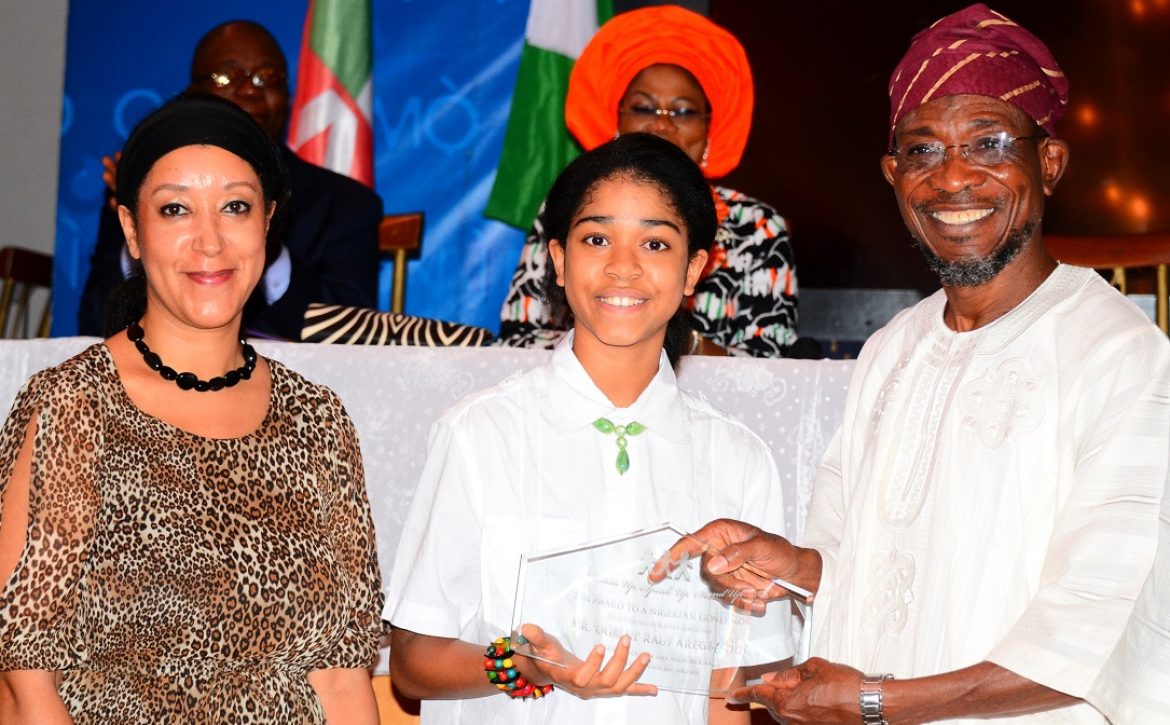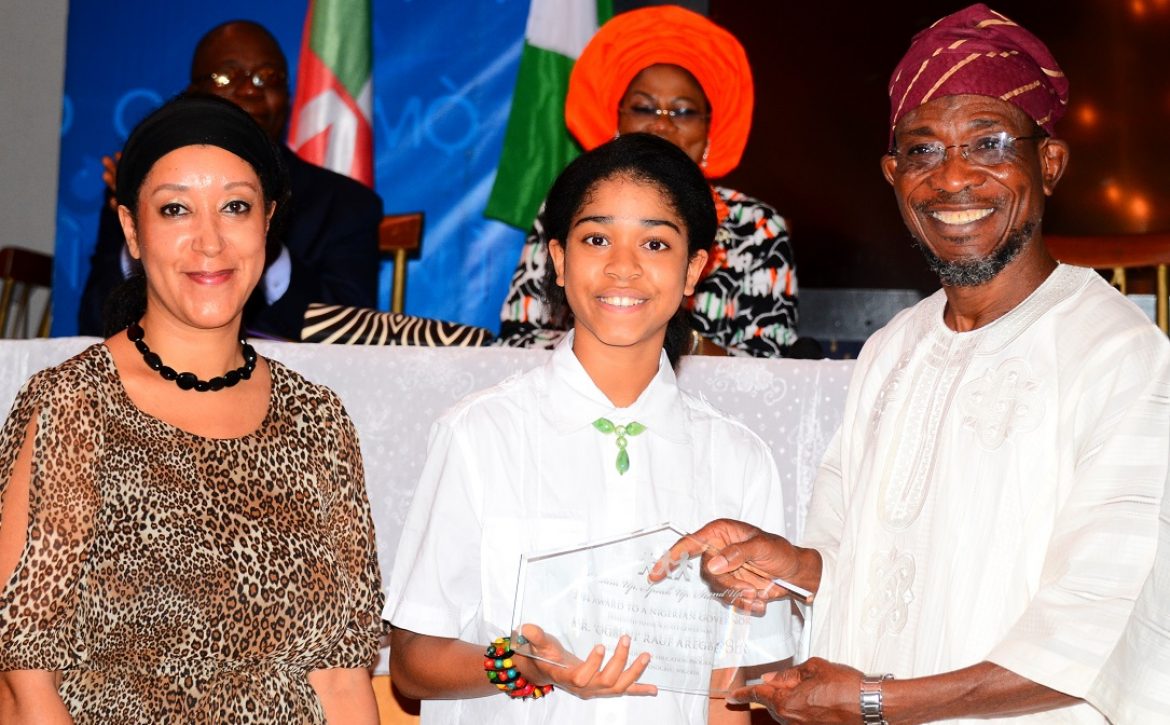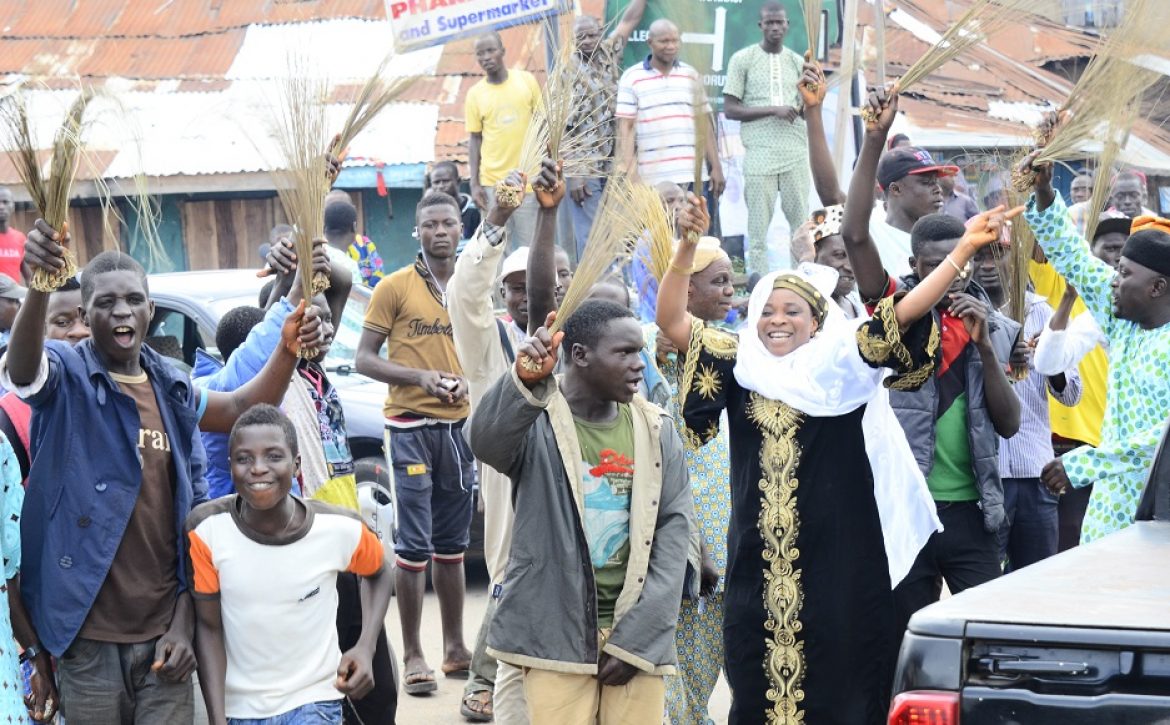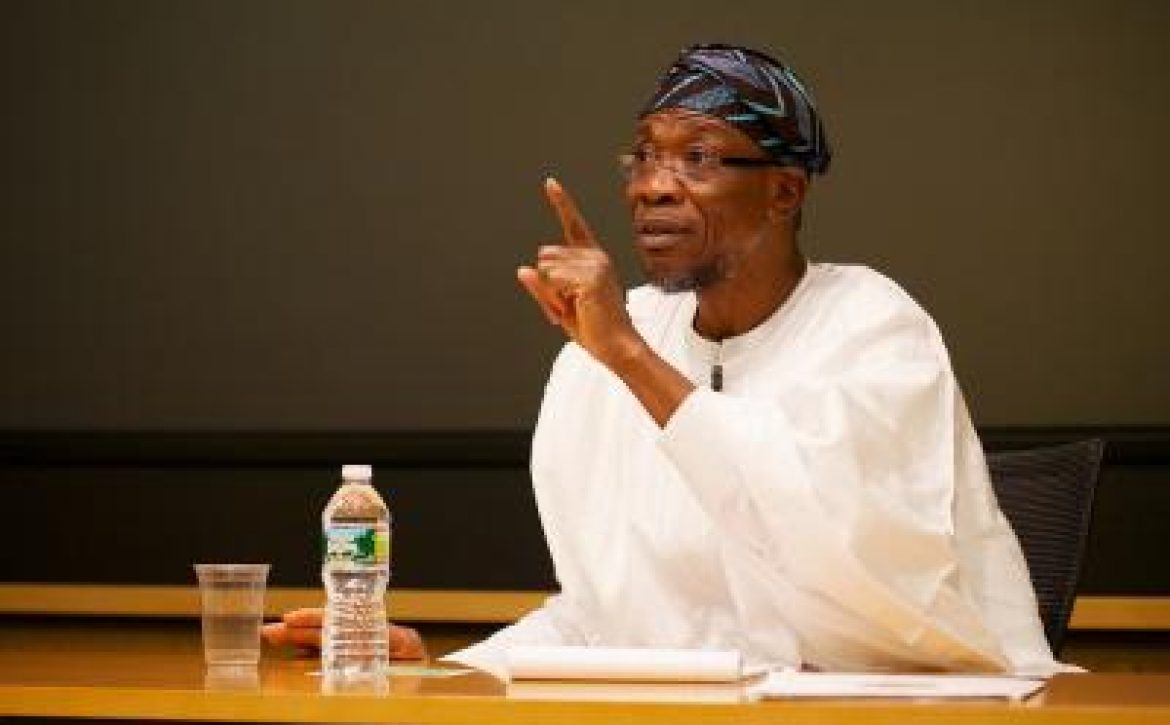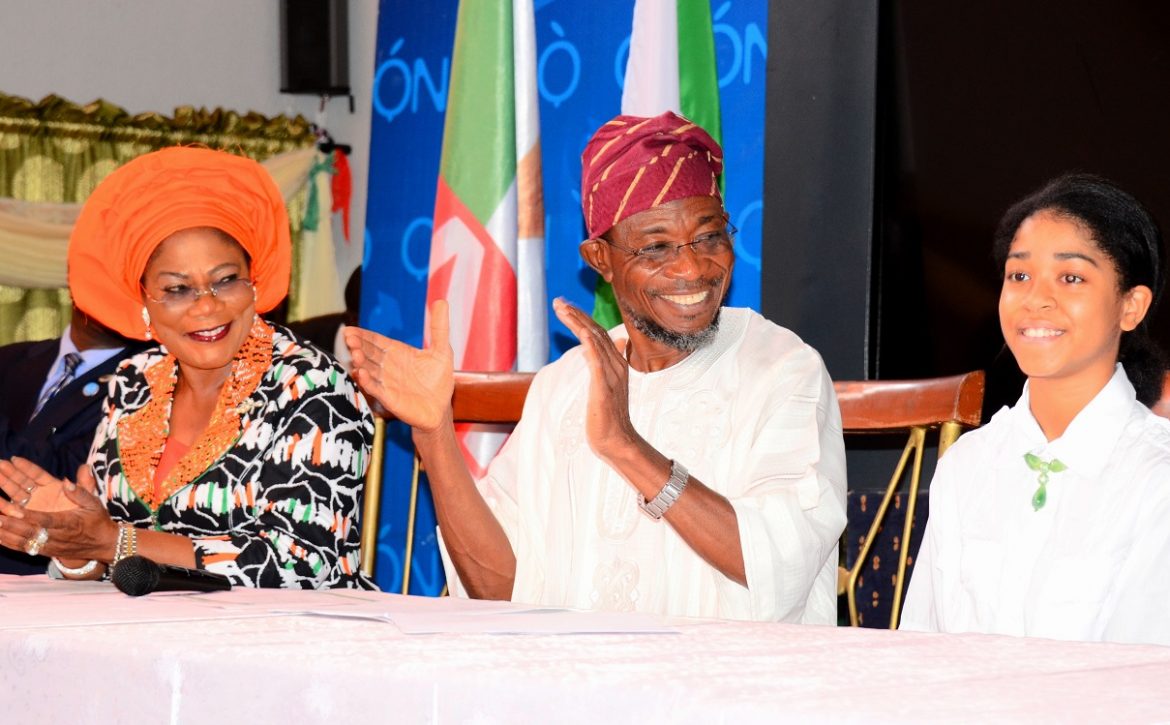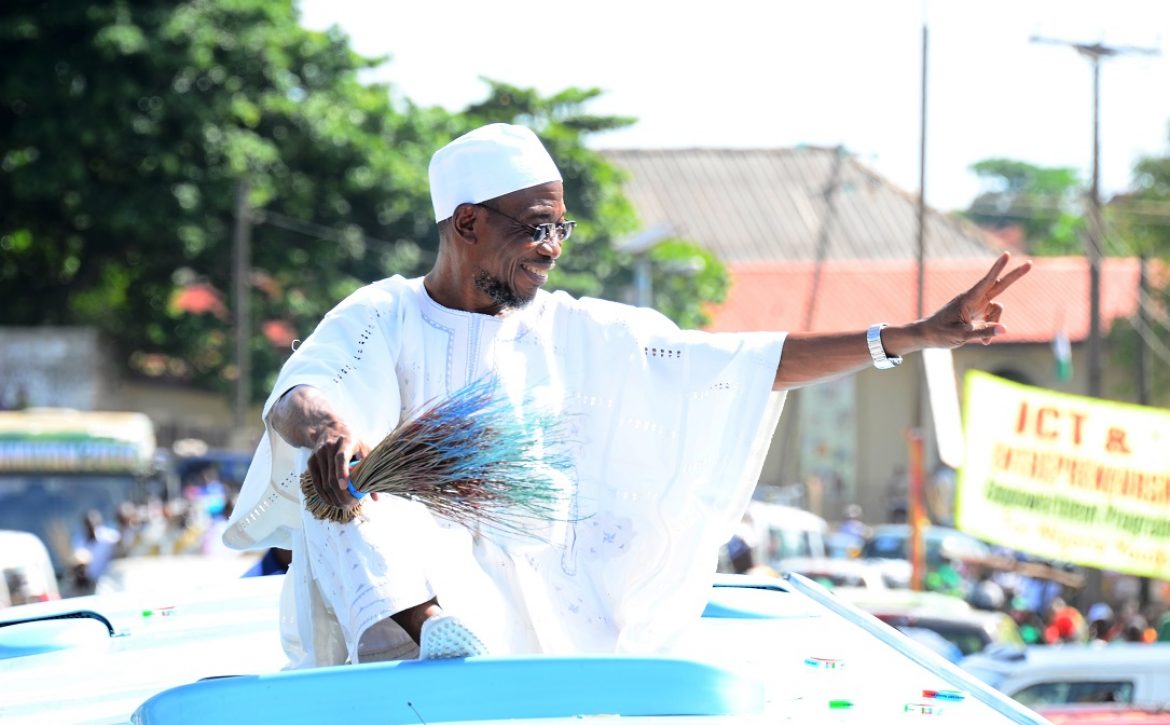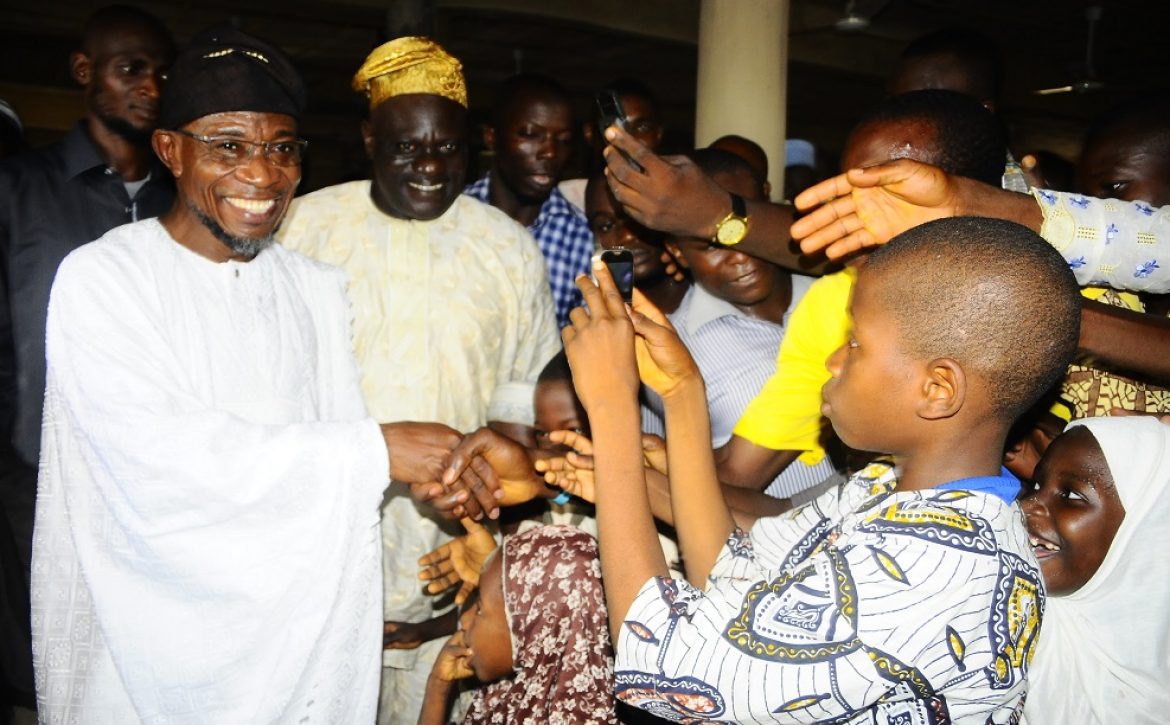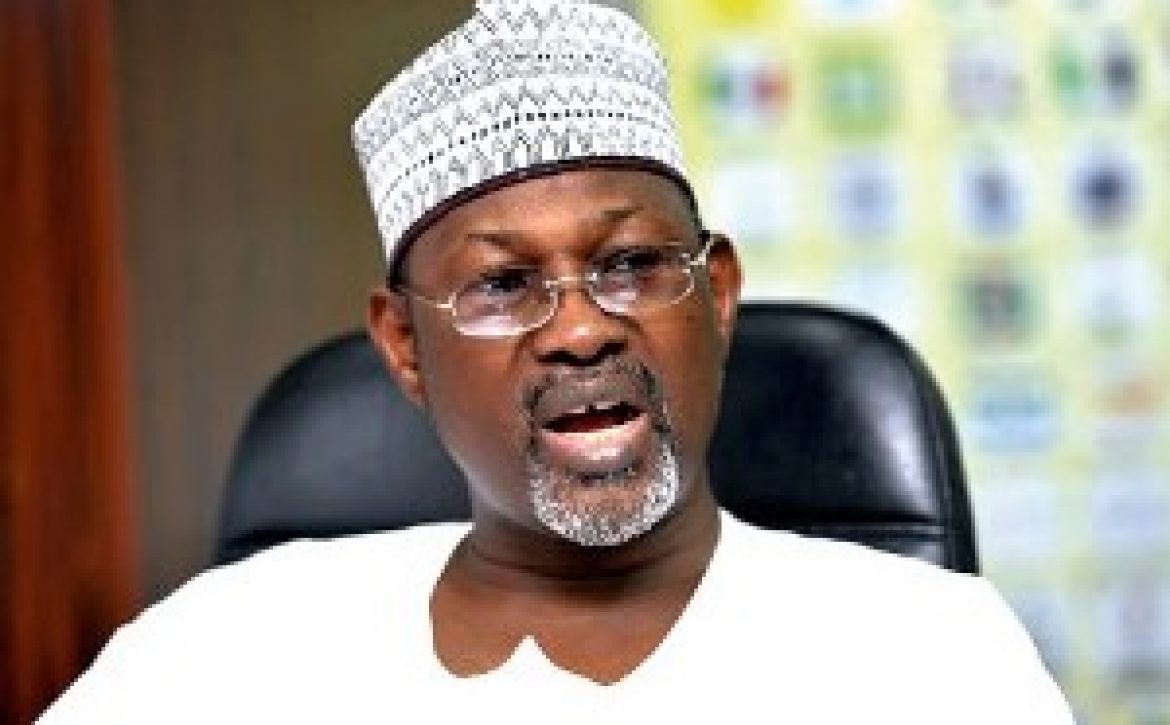
There is something that does not make any sense in this ariwo oja by apologists of the opposition Peoples Democratic Party (PDP) in Osun State. The state Governor, Ogbeni Rauf Aregbesola, is being accused of paying some workers late. I stand gidigba with those questioning the rationale for delaying workers salary when elected and appointed officials smile home everyday with wads of naira notes in their pockets. It does not make any sense. As the Holy Books pointed out, workers deserve their wages. Cheating them of it under whatever guise remains a sin before God.
But in Osun State’s peculiar case, did these PDP apologists bother to find out the financial state of the State of Living Spring? For almost one year now, if not more, the PDP-led Federal Government has indirectly ensured that most states of the Federation are starved of funds. But states in the good books of Mr. President get allocations through other means. The game heightened after President Goodluck Jonathan’s annointed candidate lost out in the Nigeria Governors Forum chairmanship election.
Today, Osun State’s allocation from the Federation Account has been down by 40%, yet Aregbesola has not reduced the pace of his projects in the state. It is my belief that whatever challenges there is concerning shortfalls in meeting financial needs has to be located in this failure by the Federal Government to meet its obligation to one of the poorest states in Nigeria in terms of revenue allocation.
Jonathan’s Administration continue to claim that daily stealing of crude oil is responsible for the shortfall in revenue allocation to states like Osun, whose normal allocation was nowhere near meeting its regular needs, not to talk about when 40% of the same allocation is now cut off by this bogus claim of oil pilferage. Almost all of Osun State’s Federal Allocation goes to payment of salaries on a regular basis, even before the shortfall brought about by the PDP-led Federal Government.
It remains a mystery to me, why an average Yoruba, educated and well-travelled, is not questioning Jonathan and his PDP for the ‘dwindling’ revenue of the Federation Account. They claim states like Osun cannot get their full dues because our oil is being stolen. Both local and international economic observers are concerned that, for the first time in the history of Nigeria, stealing of crude oil has become unprecedented. Almost 60% of crude oil produced by the oil companies is being siphoned in the creeks of the Niger Delta by persons known to the PDP-led Federal Government.
But the question is, why is it that none of our PDP apologists is asking what has happened to the billions of dollars being paid by Jonathan to Tompolo for the protection of crude oil pipelines from which the oil is being stolen? A job that is the primary responsibility of the Nigerian Navy was contracted out to Tompolo by Jonathan, yet stealing of the same crude oil has risen beyond imaginable proportions. Why are PDP apologists not asking questions?
The undiscerning may not know that the Nigerian Navy has become weakened due to poor resources, while a private concern in the hands of Jonathan’s kinsman, Tompolo, is being strenghtened with state resources. For persons like me, this is not different from what is going on in the North-East today, where the Boko Haram militants are better equipped than the Nigerian Army. The resources that should be available for our armed forces and a state like Osun are squarely in private hands. Yet, PDP apologists cannot see this.
The Chibok girls are still missing. Our soldiers and civilians continue to be slaughtered on a daily basis in the North-East and beyond either through bombs planted by Boko Haram or guns from cadres of the militant Islamic organisation. The Nigerian economy remains in trouble with obviously no solution in sight. Corruption and impunity continue to reign supreme in a country that should be a shinning light in Africa today. Yet, a clueless president produced by a political party without a vision of how to govern is not being questioned by his own people about these nightmares as if it is affecting the opposition alone.
I do not understand why persons who should be doing serious soul-searching are jumping all over the place believing that the PDP gubernatorial candidate, Senator Iyiola Omisore, is another Fayose that will happen in Osun State. As the Yorubas would say, “Igi imu, o jina si ori.” Fayose won the recent gubernatorial election in Ekiti State on the strength of his personality, not a love for PDP by the people. He remains a very strong grassroots politician, who has proved beyond every reasonable doubt that in a young democracy like ours, the people are as important as projects.
Fayose’s style, which he did not start today remains a major reason I disagreed with some friends in the All Progressives Congress (APC), who believed they were robbed of victory. Yes, soldiers and SSS were used in a very wrong manner against APC leaders, which should have provoked attacks from ordinary people against the security personnel IF the outgoing Ekiti State Governor, Dr. Kayode Fayemi, was popular enough among his people. As pointed out in an earlier piece, you cannot rig where you are not popular. Fayose connected with the average Ekiti man/woman. They see him as a friend of the downtrodden.
In the case of Omisore, the reverse is true. When Omisore was Deputy Governor during Chief Bisi Akande’s tenure as Governor, what was his relationship with ordinary people like? Was it anywhere near Fayose’s? Even after controversially becoming a senator in 2003, what was his relationship with the people? But today, jokers are trying to cloth Omisore with Fayose’s robes simply because he rode an Okada and was eating Booli with Guguru and Epa? Did he do that as Deputy Governor? Did Omisore do that as Senator? Of course, the answer is no. So, why all these noise about impending victory for a man who is far out of touch with ordinary people?
Apart from the above, I have had cause to ask some Osun State people relevant questions, answers to which they have not provided till date. Towards an election, especially for an Executive Position like this, a candidate is expected to tell the people what he has in store for them if they are to vote him into office. None of my friends have been able to tell me what Omisore is promising the people apart from abusing Aregbesola and tearing down the billboards of a sitting governor. What are his programmes? What will he do if given the mandate?
In answering the above questions, I told my Osun State friends it is important to remember that Omisore had held public offices before. If we say his position as Deputy Governor was an Amugbalegbe one, and that it did not last, what about being the Chairman of the very powerful Senate Appropriation Committee? What did Omisore do for Osun State at the time he occupied this position? Chairmen of Appropriation Committees either at the Senate or House of representatives are like Presidents on their own. Ministers regularly seek their favours.
Even the President of the Federal Republic of Nigeria try not to be in the bad books of an Appropriation Committee Chairman. It is the committee primarily responsible for ANY spending at the Federal Level. Once funds are not appropriated, you cannot touch it for any project. Such chairmen, either here or abroad, have used the positions to negotiate projects and beneficial issues for their constituencies and states. These are projects that even a State Governor cannot touch because funds involved could be bigger than what a state can afford. Omisore had this opportunity, what did he do with it?
Besides, what did Egbon attract to our ancestral land, Ile Ife, from the Federal Government while in the Senate? What did he do for his Senatorial District? Kinni Egbon se, tabi se okunfa re fun Ipinle Osun ni igba ti o wa ni Ile Igbimo Asofin Agba gegebi Olori awon ti o nse amojuto owo nina fun Ijoba Apapo Ile Naijiria? Till date, no answer from the many PDP apologists trying to use Fayose’s self-efforts to justify the impossible. But we know Omisore’s private businesses blossomed while he was in the senate. More on that at a later date.
So, all these unnecessary bravado over nothing is just what it is – hot air! It will not achieve anything for the PDP in Osun State come August 9. That is for sure.
Wale Adedayo
OSUN DEFENDER







